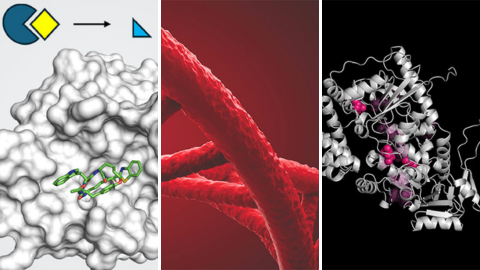Being a breath alcohol specialist
Is that driver drunk?
A lot of work and effort goes into accurately answering that question at departments of transportation, and it requires a fair amount of biology and chemistry expertise.
What is a breath alcohol specialist?
I’ll be honest that I didn’t know there were any chemistry- or biology-related jobs at transportation departments until I spoke with Boden VanDerLoop about his job at the Wisconsin DOT. VanDerLoop is a breath alcohol program specialist based in Madison.

“My job is laid out in Wisconsin’s state law. Wisconsin has a duty to uphold drunk driving laws, and, to do that, you have to figure out if a person is impaired. You can test, urine, blood or breath. And analyzing breath is the least complicated way to do that. An officer can do it within a reasonable timeframe.”
Since the law depends on the breath alcohol tests, the tests must be accurate, the equipment must be well maintained, the officers administering the tests must be well trained in how to do it, and one must be able to defend the test results in court. VanDerLoop’s job encompasses all these different pieces.
Instrumentation and science
The first aspect of his job is keeping the testing instruments in top shape, making sure they’re accurate and undergo regular maintenance. He also must stay up to date on research in fields related to testing and alcohol biology.
VanDerLoop has a bachelor’s in biochemistry and a master’s in chemical biology, so coming into the job he had the framework to quickly learn how the tests work, as well as the biology of alcohol. To stay current on research in the field, he does literature reviews and reads textbooks.
Teaching and traveling
Another aspect of his job is training officers to administer the tests. He travels eight times a year to give three-day courses on the tests to law officers.
This is a core part of his job; in fact, part of his interview process was giving a mock lesson on a science topic, so his teaching and public speaking skills could be evaluated.
Legal aspects and court work
Besides the biology, chemistry and teaching, VanDerLoop’s job also involves the legal aspects of drunk driving: he can be called into court as an expert witness in drunk driving cases.
Being questioned in court about the testing and the equipment requires not only that he keep an excellent record of equipment maintenance and keep up to date on the science and what any data or result means in the real world, but it also requires him to speak well, clearly and accurately in situations that can be adversarial.
The good and the (just a little) bad
There are a lot of things he likes about the job. “I like the amount of things that you learn,” he said immediately. “It’s interesting because it’s at the intersection of chemistry, analytical testing and law. It’s a mix of all these things.”
He said he also appreciates the stability of the job and the benefits of working in government.
“Here, you’re given 40 hours of work to do, and 40 hours to do it in,” he said, contrasting that with academia, where there can be the expectation to put in lots of overtime.
VanDerLoop said he had considered staying longer in academia, but he'd served in the military for several years before college, so he was older than a typical student and in some ways at a different life stage. He said it didn’t seem realistic to stay in academia, given the uncertain future it brings: You are often expected to work for a relatively low salary, without access to a retirement plan, and move every few years. It seemed time to find a more reliable path, he said.
The only negative he offered is that the job can be hectic at times. He’s in charge of a lot of moving pieces, particularly managing the training for so many busy people.
VanDerLoop said that enjoys the traveling that he has to do to teach his courses, but he pointed out that the amount of travel required is something to keep in mind if you are interested in this type of job. It wouldn’t be ideal for someone who needs to be home every night.
For others interested in this type of job, he recommends looking on state websites, as all states have one. Wisc.jobs was where he found his.
Enjoy reading ASBMB Today?
Become a member to receive the print edition four times a year and the digital edition monthly.
Learn moreFeatured jobs
from the ASBMB career center
Get the latest from ASBMB Today
Enter your email address, and we’ll send you a weekly email with recent articles, interviews and more.
Latest in Careers
Careers highlights or most popular articles

Upcoming opportunities
Friendly reminders to register for the upcoming ASBMB Breakthroughs webinar on nuclear second messenger signaling and ASBMB's in-person symposium on proteomics in Cambridge, Mass.

2025 PROLAB awardees announced
Seven early-career scientists receive grants to advance their research by working in North American labs.

Upcoming opportunities
Register for ASBMB's upcoming free professional development webinars on women in science and commercializing biomedical research.

Teach, learn & transform biochemistry education
Meet the co-chairs of the 2025 ASBMB meeting on reimagining undergraduate education in the molecular life sciences to be held July 24–27, 2025 in St. Paul, Minnesota.

Upcoming opportunities
Submit your abstract for ASBMB's upcoming meetings on nucleophilic proteases, gene expression and O-GlcNAc.

Upcoming opportunities
Friendly reminder: Submit your abstracts for upcoming ASBMB meetings! Just added: virtual events on AI and STEMM graduate education.

